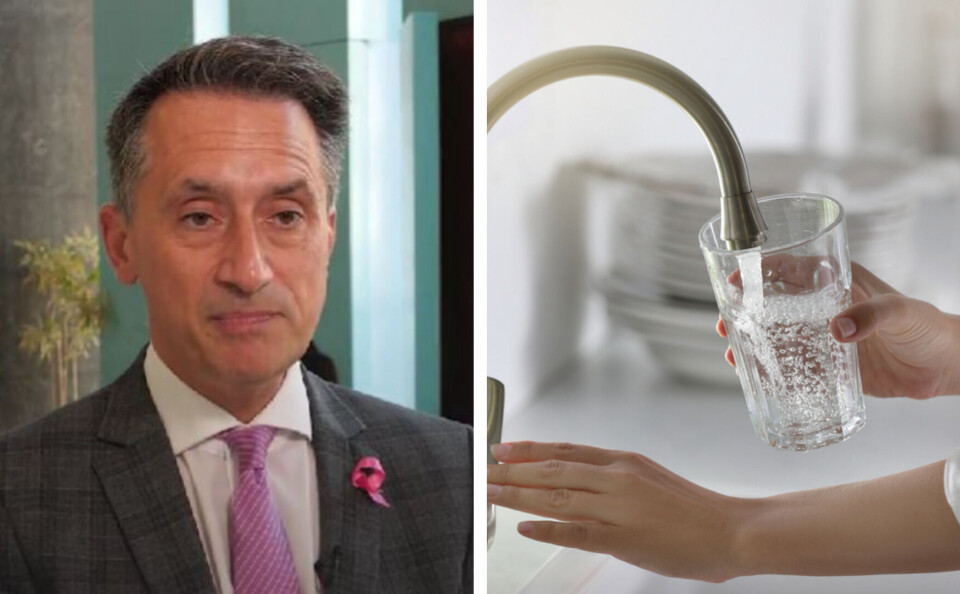-
Two Britons killed in avalanche in French Alps were with an instructor
French skier also died in the disaster at Val d’Isère on Friday February 13
-
British Airways launches bargain £2 flights to France (but there’s a catch)
The flights are only available to members of the airline’s Avios scheme who are redeeming loyalty points
-
Pistes closed, confinement orders: Alpine resorts deal with avalanche risk
Increased snowfall this weekend may cause further closures as busy school holiday season continues
Tap water in France is safe, says health chief who sent leaked email
The internal memo was ‘published out of context’ causing alarm

The health chief who told senior staff in a leaked email not to drink the tap water in south-west France says that his words were taken out of context and that it is in fact safe to drink.
Mr Jaffre, director of ARS Occitanie, the state body responsible for the implementation of health policy in the region, sent an email to senior staff on September 18, 2023, which was in part published by newspaper, Le Canard Enchainé on October 18.
Read more: Avoid drinking tap water in south-west France, says leaked email
In the mail he reportedly told senior staff:
- “PFAS (per -and polyfluoroalkyl compounds) are everywhere” in tap water
- “Do not do the tests” for PFAS compounds
- “Tap water should not be drunk”
- “We have to favour bottled water”
Mr Jaffre has since spoken to several news outlets, including to The Connexion, to clarify these remarks.
‘An internal memo’
“Firstly, I truly regret that my words as quoted by Le Canard Enchaîné could lead to worry or confusion in the general public, which is perfectly understandable,” Mr Jaffre told the Midi Libre.
“Secondly, this was an internal memo with no information value that was just circulating a short personal note.
“Obviously, when taken out of its initial context, it seems worrying. And even more so given that I am the manager responsible, along with my teams, for the daily water quality checks for people all over Occitanie.”
Are PFAS compounds ‘everywhere’?
In terms of PFAS ‘forever chemicals’ in the water, Mr Jaffre said that the ARS regional bodies follow the national standards set by the French Agency for Food, Environmental and Occupational Health & Safety (Anses).
“It is not my role to determine the standards or to have an opinion of them, just to apply them and respect them,” Mr Jaffre told The Connexion.
It was suggested in Le Canard Enchaîné that Mr Jaffre instructed ARS Occitanie to not carry out testing for PFAS compounds, which are to be subject to more stringent testing from 2026.
He confirmed that the ARS Occitanie does test for PFAS compounds according to the levels determined by Anses, and that the reports he told his staff not to do the tests are a “misinterpretation”.
“Not only are we continuing to look for these molecules, but we have strengthened our checking guidelines. This applies not only to PFAS and metabolites but also to pesticides and any particles that science as it develops requires us to find, without waiting for 2026.
“The levels are within permitted limits in the great majority of cases. When they are above these levels, we take the steps necessary to avoid any risk to the population,” he told Midi Libre.
Is tap water safe to drink?
“Yes. Based on the 37,000 checks that we perform on 300 parameters, I can assure you that the tap water in Occitanie is drinkable,” he said.
“I want to reassure people in Occitanie that tap water can be drunk safely.”
Mr Jaffre added that the results of water testing are made available to the public, and anyone can view this information on their water bill.
Read more: How safe is it to drink tap water in France?
What can people do about PFAS compounds in tap water?
Mr Jaffre told The Connexion that this topic is out of his remit.
However, the presence of these ‘forever compounds’ in tap water is by no means only a French problem.
In the US, the advice of PFAS-REACH (Research, Education, and Action for Community Health) is to prioritise limiting the presence of PFAS compounds in the home:
- Avoid stain-resistant carpets and upholstery, and do not use waterproofing sprays.
- Look for polytetrafluoroethylene, or PTFE, or other ‘fluoro’ ingredients on product labels.
- Avoid nonstick pans. Instead use cast-iron, stainless steel, glass or enamel products.
- Avoid takeaway containers and other food packaging. Instead cook at home using fresh ingredients.
- Avoid foods wrapped in grease paper.
And if you suspect your water is contaminated, you can use either an activated carbon or reverse osmosis filter to eliminate most of the PFAS molecules present.
However, these molecules are so extremely small that their length is measured in terms of carbon atoms. The accumulation in the body of even a nanogram of PFAS can take many decades.
























